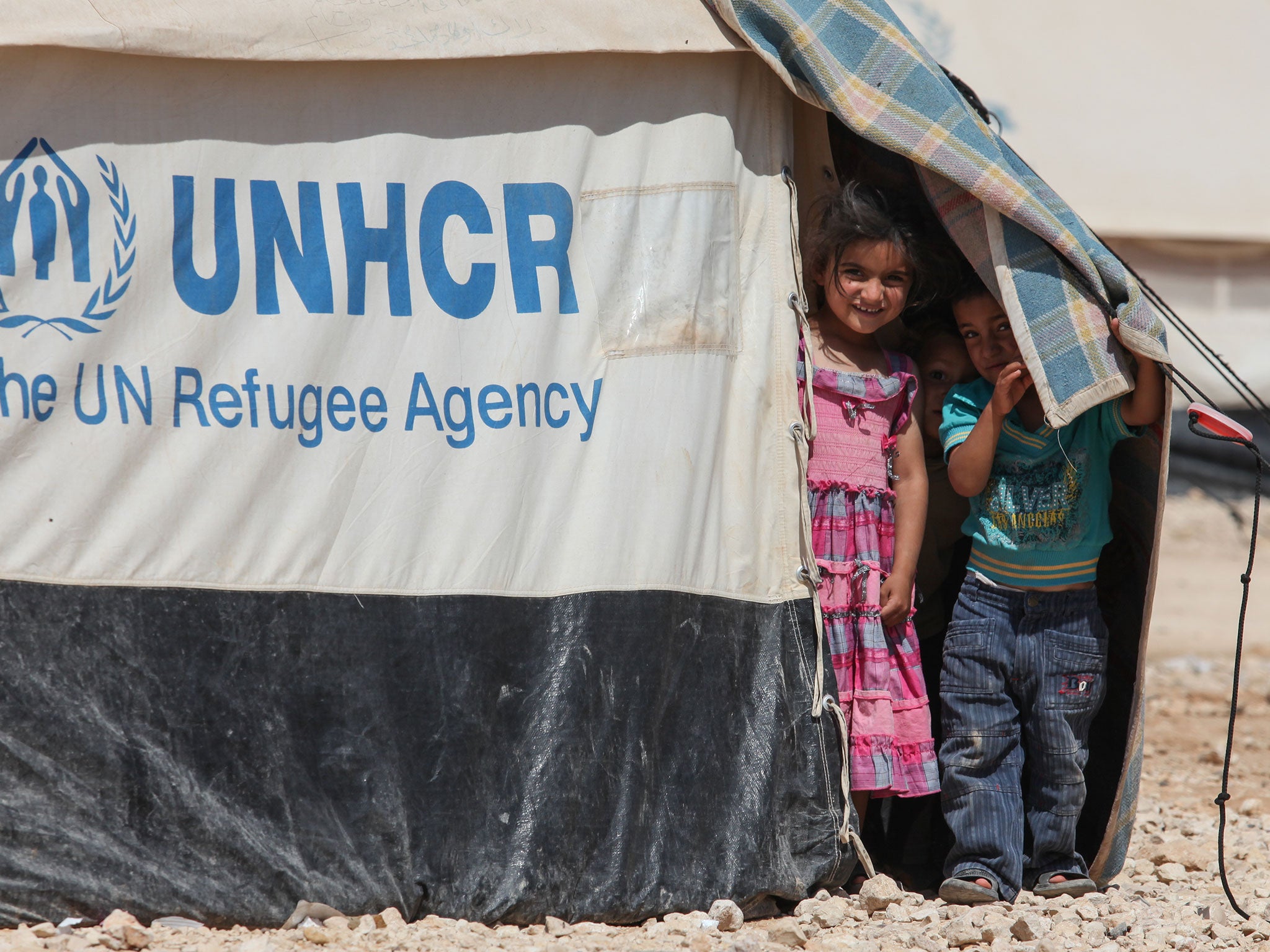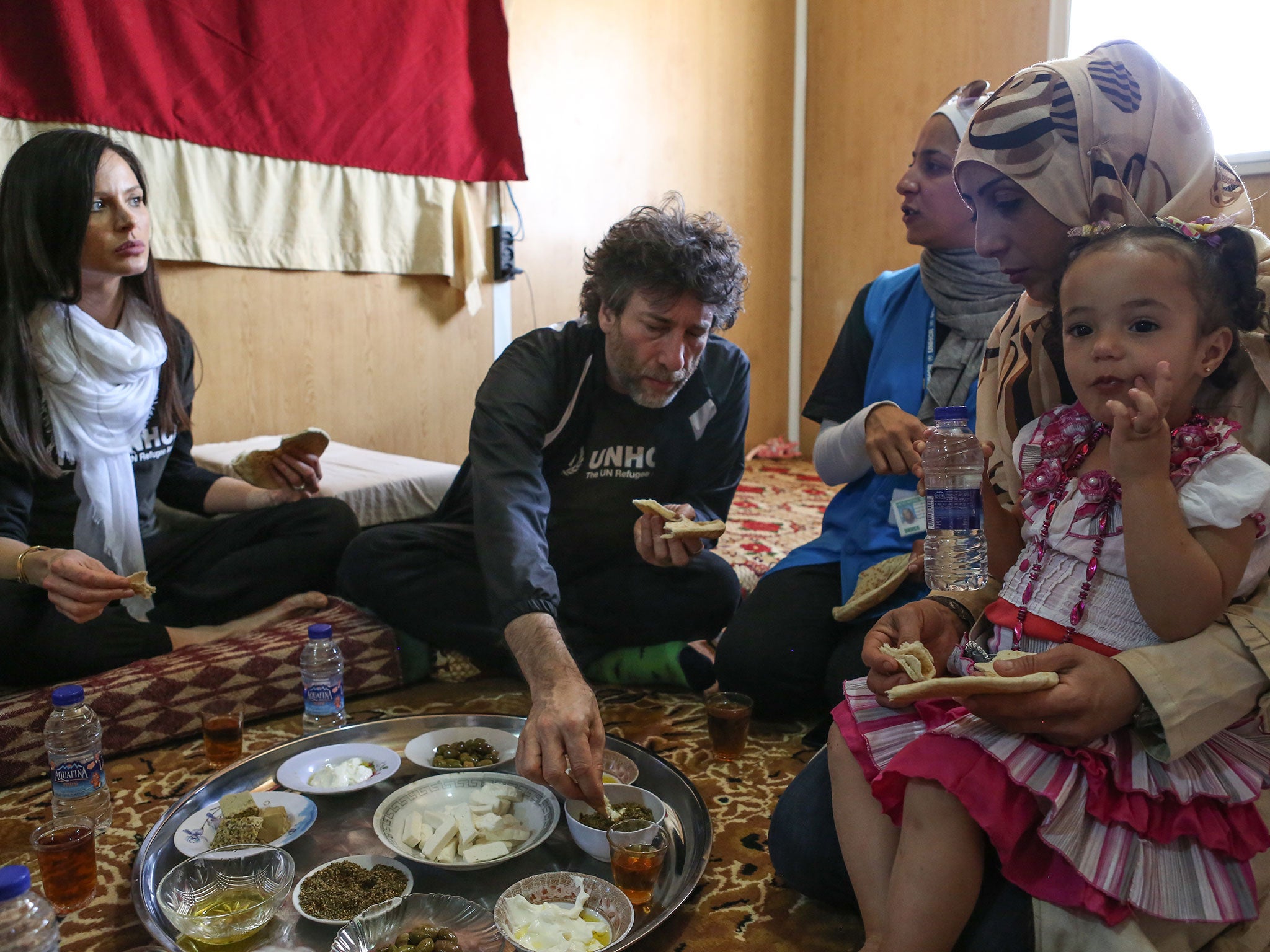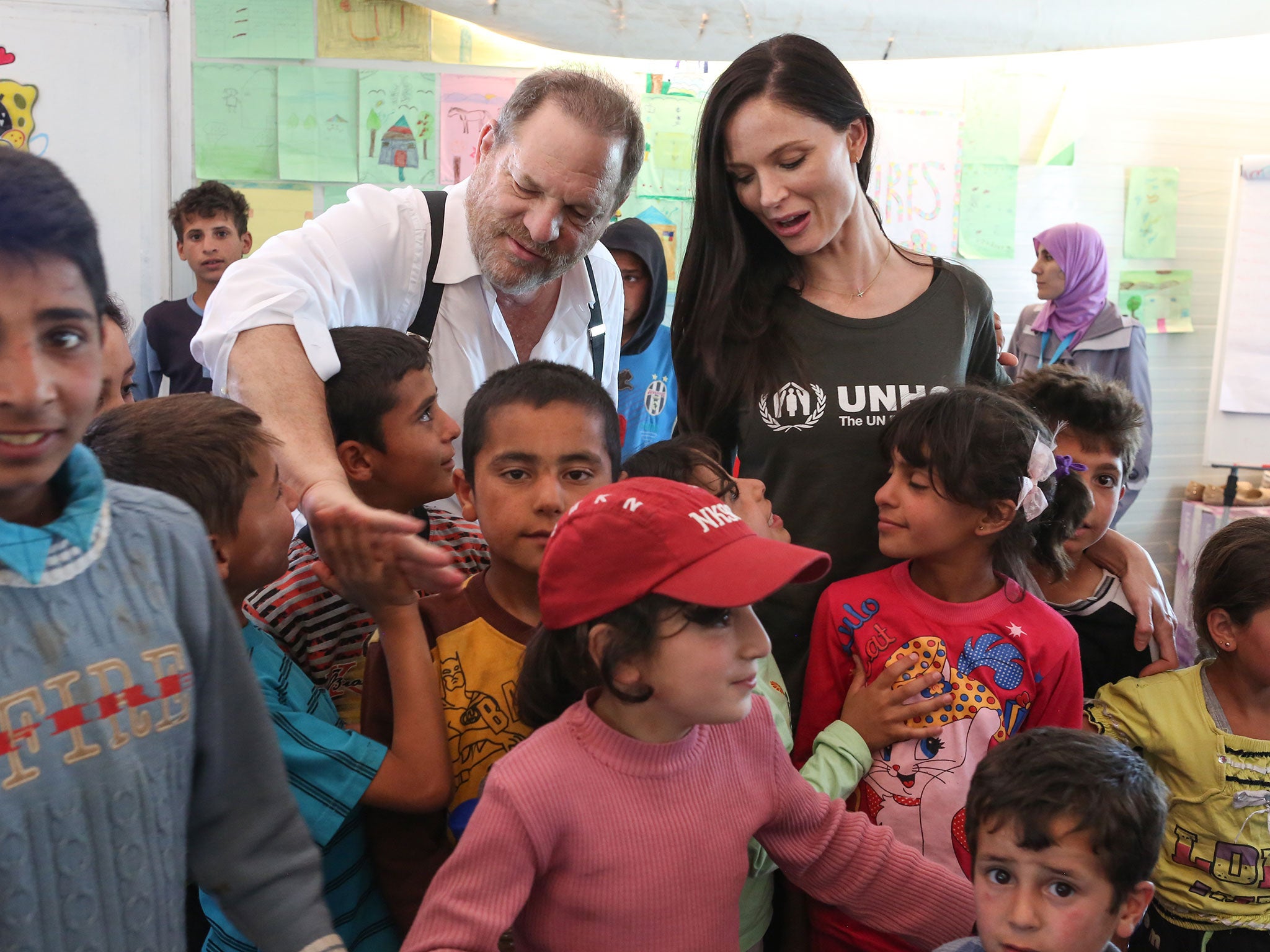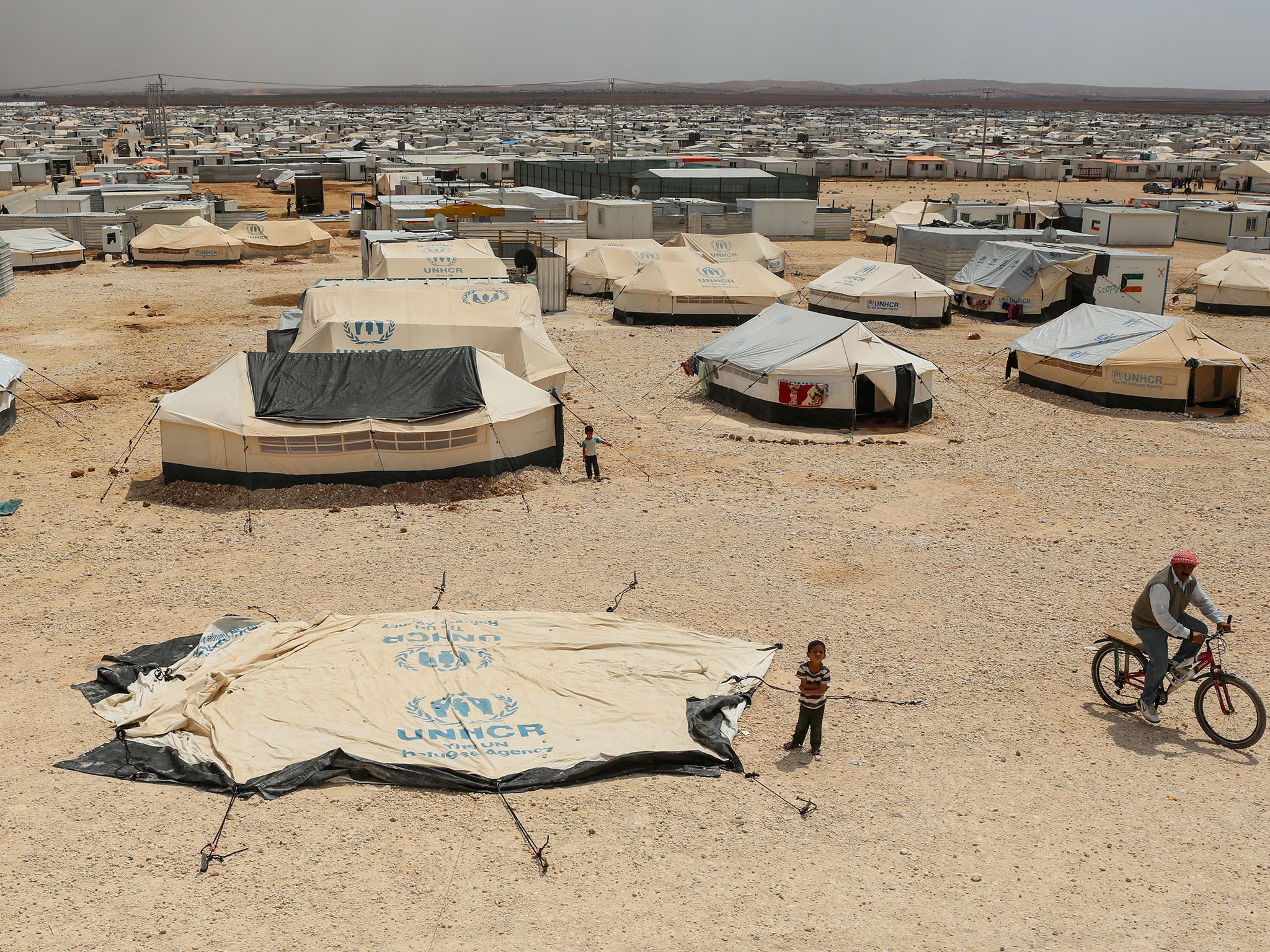Witnessing heartbreak and hope at a Syrian refugee camp in Jordan
Silver screen mogul Harvey Weinstein's moving experience at the Zaatari refugee camp

There are two Champs-Élysées in the world. One is in Paris. It's filled with movie theaters, boutiques, markets, and fantastic restaurants. Two months ago, I found myself walking down the other Champs-Élysées, so nicknamed by aid workers, in the middle of the Zaatari refugee camp in Jordan.
Zaatari is a ramshackle city of tents and containers, home to about 120,000 Syrian refugees. The streets of this Champs-Élysées are lined with makeshift stores. Where the walkways of its Parisian namesake are bordered by street lamps, here electricity is jimmy-rigged and borrowed from street lamps. It was incredible to see an improvised pizza-delivery place, a wedding dress rental shop, and, my personal favorite, a baklava bakery.
The bakery was run by a family of mothers, fathers, grandmothers, grandfathers, and grandchildren, and overseen by several brothers. They had survived the atrocities across the border. They each had unimaginable stories of heartbreak - their houses had been blown up, they saw men shot right in front of them mid-sentence, mid-conversation. What’s more, the people who pulled the trigger could equally have been from any side. They not only survived, but also endured to recreate their bakery to feed their fellow refugees. Their pride in their desserts was as tangible as a sculptor’s in his creation.
Their generosity was unparalleled. Every time I tried to pay for something, a hand would slap me away. “What, are you trying to insult us? Eat. Enjoy.” Whenever I hear someone say “Eat. Enjoy”, it reminds me of the way my grandmother spoke to me. It reminds me that we are all the same. We are family.
I came to Zaatari and Jordan to accompany the writer Neil Gaiman and my wife Georgina Chapman, who, together, had been invited by the United Nations High Commissioner for Refugees (UNHCR) to create a storytelling project about the plight of the Syrian refugees who had flooded into Jordan.
I met with Queen Rania and asked her why Jordan was so generous with its refugee policy. According to the queen, there are now about 1.3 million Syrians in her country; 630,000 of them are registered as refugees. She said that her husband, King Abdullah II, on seeing women and children fleeing danger, felt that there was really no decision to make, it was the right thing to do, and Jordan will always do the right thing. As a father, a leader, and a humanitarian, King Abdullah II opened his doors. This is not something we would allow in our country or in England. Not on this scale, when the burden on the country’s infrastructure and services is almost crippling. It is the sacrifice of the Jordanian people, and those in Syria’s other neighboring countries - Iraq, Turkey, Lebanon - that allows for the survival of the Syrian refugees.

Queen Rania and I talked about movies and politics, but most importantly about the importance of education and its potential to transform the Arab World. When education comes to the Middle East, and to young women in particular, and they realize they can be what they want to be, the world will grow different.
When the women marched against gun violence in Ireland, the men listened. One hopes the same would happen as women take up more prominent positions in Middle Eastern countries where they are currently oppressed.
The UNHCR briefed us on what was happening inside Syria - about the level of the destruction and the violence that has ravaged the country. Many of the refugees don’t know anymore who it was that attacked their village, who kidnapped their friend, who slaughtered their family, who they were running from. The Syrian army, the Free Syrian Army, al-Qaeda, Isis, splinter groups of any and all of them - there are so many factions in play now. Every minute of every day unimaginable acts of cruelty, so dark, so grotesque, are being meted out to innocents across great swathes of their beloved country. What man does to another man never ceases to amaze me.

I listened with Georgina and Neil to a man who was beaten in front of his family - his wife and young children - for over an hour and a half. You could see his mobility had been eviscerated and that a man who needed to be the proud and strong family leader had been brought to his knees by sheer human cruelty. Neil told me about 11-year-old Rania. A mortar fell on her house in the middle of the night. Her father died. Rania and her five sisters lived, but she is missing a third of her jaw. The volunteer medic who attends her had recently run out of painkillers. Our translator said with despairing wonder: “How does she sleep at night?” I do not know how to answer that question, nor do I know how we can sleep at night, when this is happening.
Each tale we heard, each journey, was more harrowing than the last.
The UNHCR. introduced me to a group of young adults learning English, 10 women on one side, 10 men on the other. We talked movies. Their favorite actress? Angelina Jolie. Why? She is a great actress and had also visited the camp twice, unheralded. They love her for her craft, but also for her humanity. I asked about actors. They told me they identified with characters who did the right thing, the hard thing, to make sure good triumphed over evil.
Then they had a question for me: why, after we told the world that chemical weapons were our line in the sand in the Syrian conflict, did we do nothing? America is their movie star. We are their Shah Rukh Kahn, Wahlberg, Cruise, Stallone: the guys who do the right thing. How to explain that after Iraq and Afghanistan, the U.S. and U.K. became tired? That we do not want to see our own sons and daughters in harm’s way?

The work of the UNHCR is filled with a lot of sacrifice and very little thanks. They are building cities in the sand, erecting shelters as quickly as refugees arrive, providing health care, education, water, support, and protection for the millions forced to leave their homes in the biggest humanitarian crisis of our time.
We visited a camp that had opened two weeks before. It was only home to 4,000 refugees. Sadly, and not so slowly, it will undoubtedly fill its capacity to shelter 120,000 refugees. The stories of their various journeys across the border were harrowing - each tale a nightmare. But the “child-safe” areas in the camp were a source of profound inspiration, and hope. Here, children who had only weeks ago been too traumatized by their journey to speak, laughed and played openly.
I watched 10 young kids (more than 50 percent of these camps’ populations are children) playing soccer with an imaginary ball. Five against five, screaming and cheering, their imaginations working overtime to create joy in the middle of a desert. The resilience of children is both heartbreaking and uplifting. What I saw on the faces of those soccer players, I knew I would remember long after everything has faded. What has happened here in this desert has brought them the chance to experience joy again. The work isn’t done, but it’s a hell of a start.
For more info and how to support visit www.unhcr.org/neilandgeorgina
Join our commenting forum
Join thought-provoking conversations, follow other Independent readers and see their replies
Comments
Bookmark popover
Removed from bookmarks